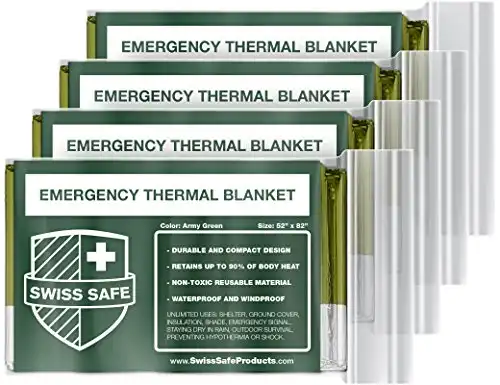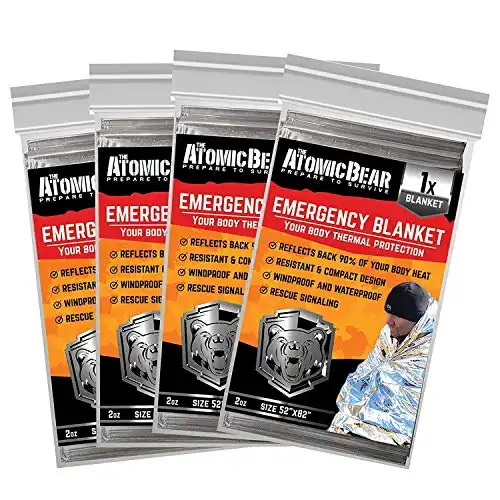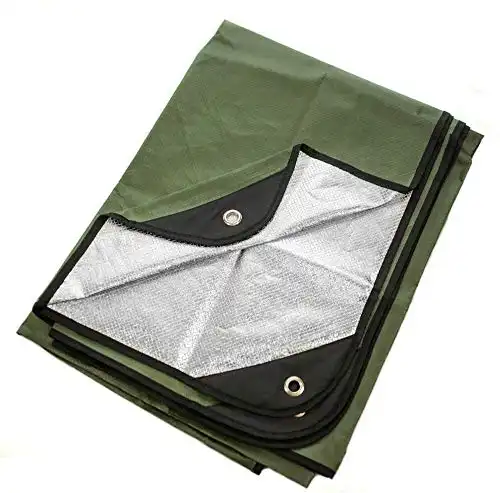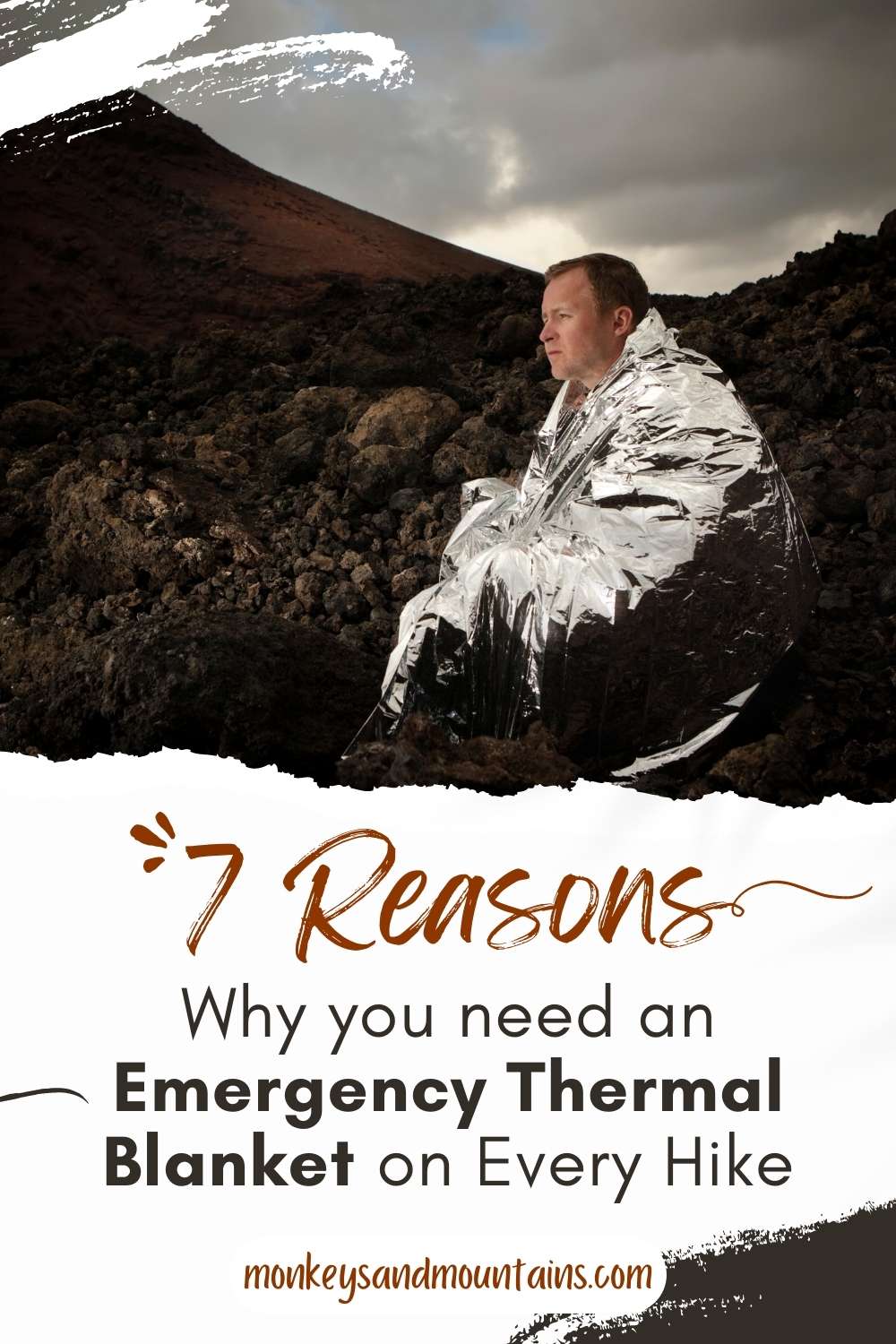Seven reasons why you should bring an emergency thermal blanket on every hike. One is that it can save your life if you have to spend the night on a mountain.
Table of Contents
No matter how prepared you think you are for a hike, there is always the possibility of an unexpected emergency situation arising, whether that’s getting caught in a storm or you end up spending the night outside in freezing temperatures due to an injury.
In this post, I’ll explain why you should bring one on every hike. Not only is it one of your most important pieces of winter hiking gear, but I also recommend bringing one even when you’re hiking in summer. It’s one of the most important pieces of survival gear you can have. But first:
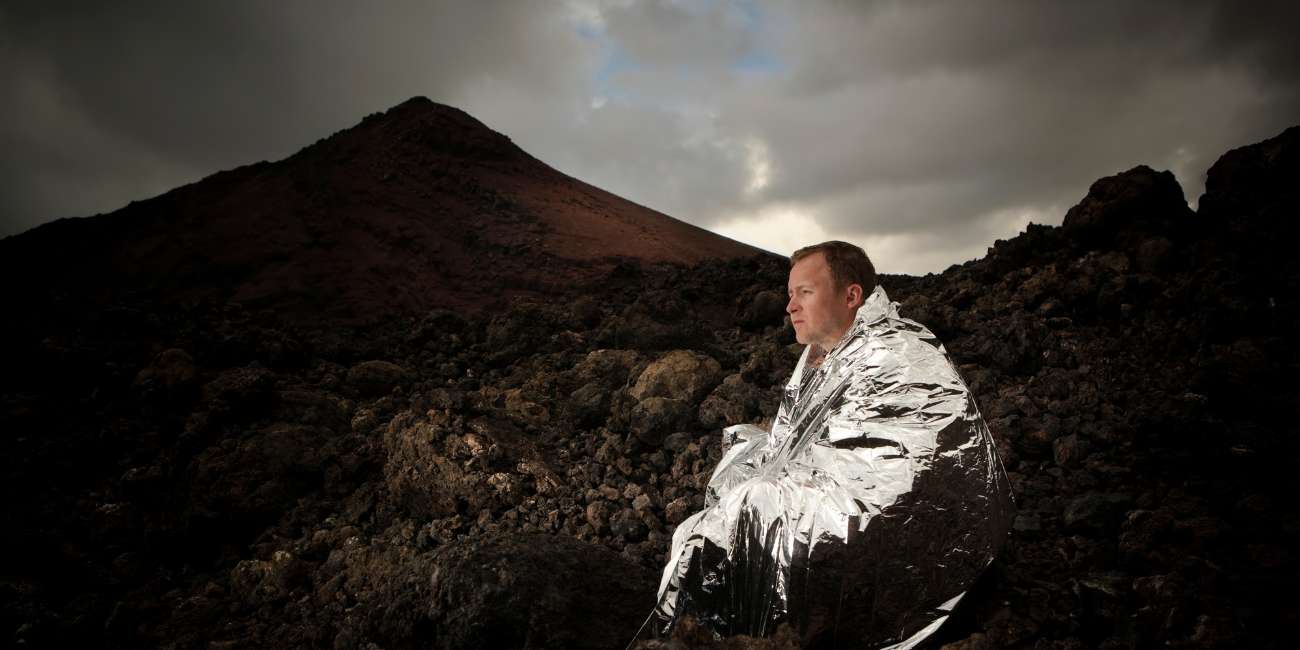
How Do Emergency Blankets Work?
Emergency thermal blankets, also known as survival blankets or space blankets are made from a special type of material called mylar. It acts as an insulator by trapping heat, helping you to retain your body temperature. It keeps you warm even in extremely cold conditions.
In addition, the mylar material is also waterproof, so it can also provide additional protection from the elements if you’re caught out in bad weather.
7 Reasons Why You Should Carry an Emergency Blanket on Every Hike
This is not just my opinion.
According to the International Journal of Environmental Research and Public Health, 19(19):
Rescue blankets are important rescue equipment in alpine and wilderness emergencies with multifunctional applications, and must be part of every personal medical kit.
1. Survival Blankets Insulate You Against Cold Temperatures
They trap your body heat, minimizing heat loss in extreme weather conditions, which helps prevent hypothermia, a life-threatening condition that occurs when your body temperature drops below 35°C (95°F). Hypothermia is of the biggest dangers when hiking.
An emergency thermal blanket can keep you warm in temperatures as low as -20° Celsius or -4° Fahrenheit.
I always carry one when outdoors, even in summer, since if you get stuck on the mountain, temperatures can often drop to near or below freezing.
I’ve had two occasions where I sprained my ankle while hiking and almost had to spend the night outdoors. You won’t die of a sprained ankle, but you can die of hypothermia if it’s a cold night and you’re outside.
Most hikers are concerned about running into bears or other wildlife when in reality, hypothermia is a much bigger danger. Fortunately, you can prepare for it.
These reflective blankets can also add an extra layer of waterproof protection and against the wind if you’re caught in an unexpected cold front or blizzard while hiking.
2. Emergency thermal blankets are lightweight
They weigh almost nothing and hardly take up any room, so there’s no excuse not to carry them on every hike – even in summer. Mine always stays in the top pocket of my hiking backpack.
I never take it out to ensure that I don’t forget it. and highly portable, making them ideal for carrying when out on a hike or any other outdoor excursion.
They can easily fit into a bag or pocket, meaning they won’t weigh down the pack or take up too much room.
3. Thermal blankets provide an extra sense of comfort and security
If you get lost when hiking and it starts to get dark and the temperature drops or you encounter an unexpected storm, having an emergency thermal blanket provides peace of mind that you’re prepared and will be OK.
4. Emergency survival blankets are multifunctional in survival situations
They’re perfect for use in different types of emergencies that may occur while exploring the outdoors. Besides being a blanket for warmth, insulating you from cold temperatures, they also provide protection from the elements like rain or wind.
You can use it as a ground cover to sit on, protecting you from the cold ground or even in first aid treatment such as using it to wrap burns or stop bleeding wounds in a survival situation.
5. They also protect you from the heat
Thermal blankets aren’t just useful for keeping you warm; they can also help protect you from direct sunlight. They act as an extra layer of shade when used as an emergency shelter outdoors.
This helps protect from dehydration, especially during hot summer months or desert climates where shade is hard to come by.
6. You can use it to signal rescue teams
The reflective layer of emergency thermal blankets also makes them ideal for signalling rescue teams or other hikers if you get lost while out on a hike.
Simply go to an open area, and lay the blanket on the ground with its reflective surface facing upwards. This will make it easier for potential rescuers to find you.
7. Survival blankets are cost-effective
You can often purchase them for less than $10. In addition, these blankets are durable and they won’t easily rip or tear. Many are also reusable, providing longevity for many years of outdoor activities.
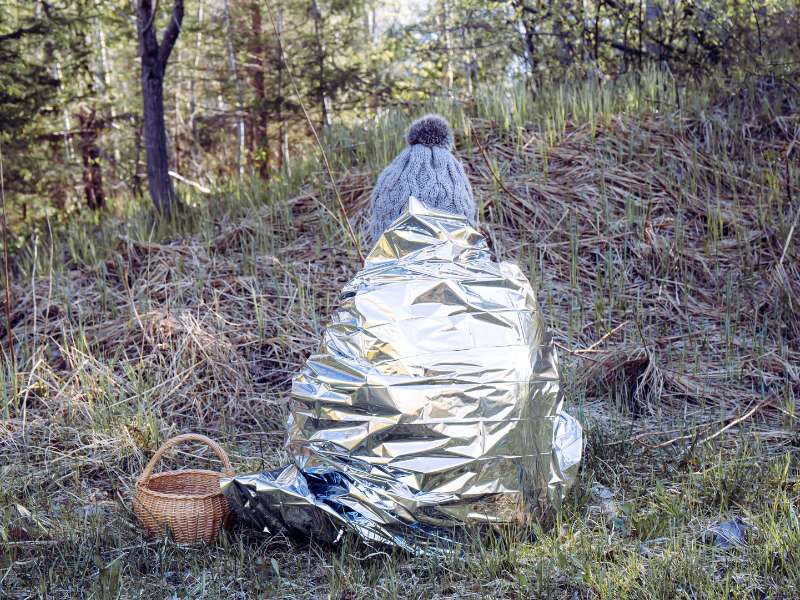
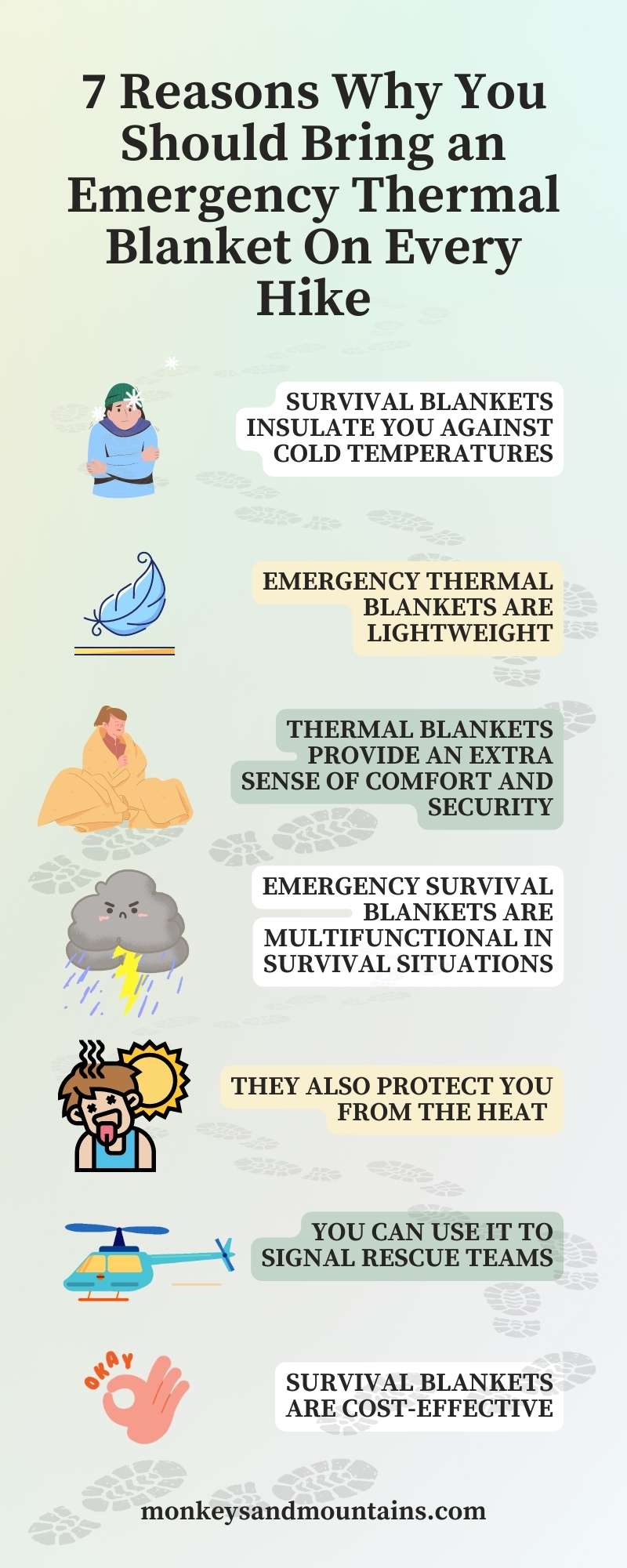
Recommended Emergency Thermal Blankets
Now you know why you should always carry an emergency thermal blanket. If you get stuck unexpectedly on a mountain overnight, at best it will be a more comfortable night, but more importantly, it could save your life by preventing your body temperature from dropping too low.
Be sure to check out our Winter Hiking Tips for more safety tips and how to start warm.
